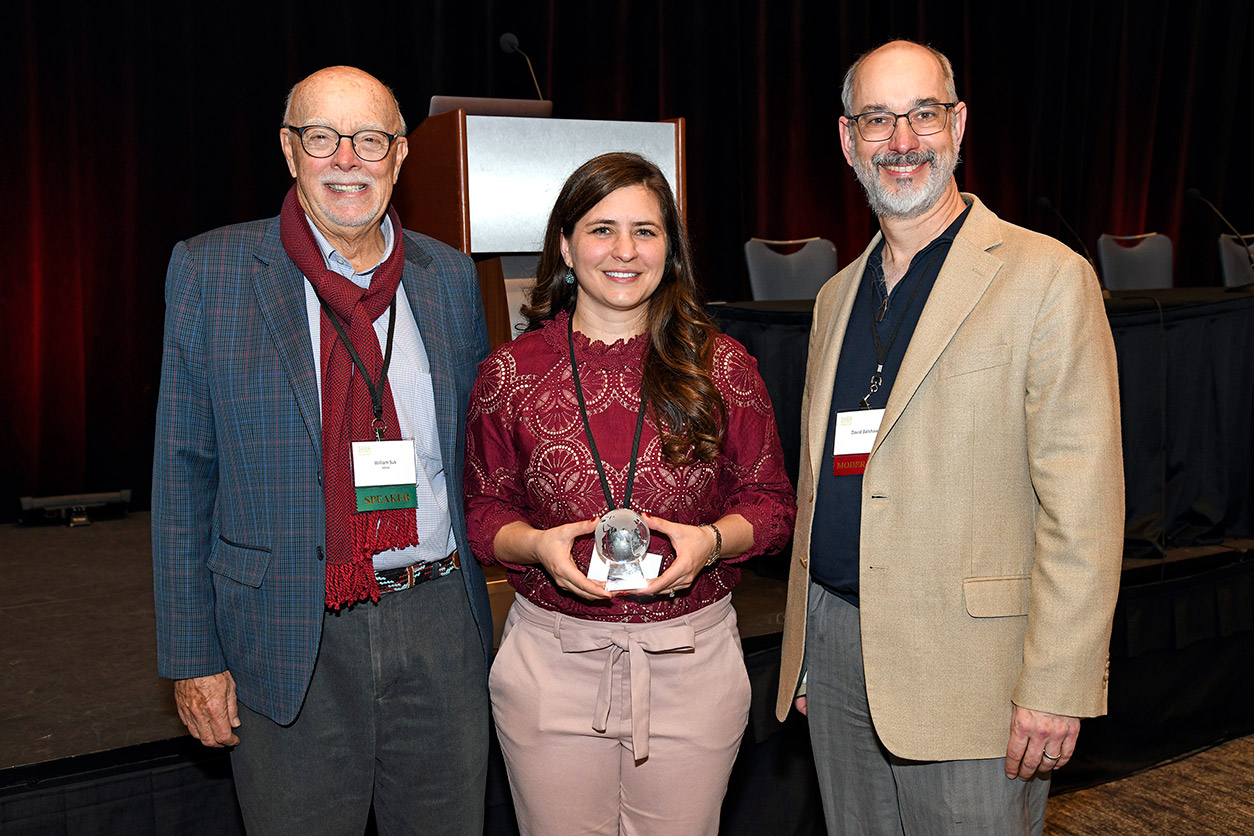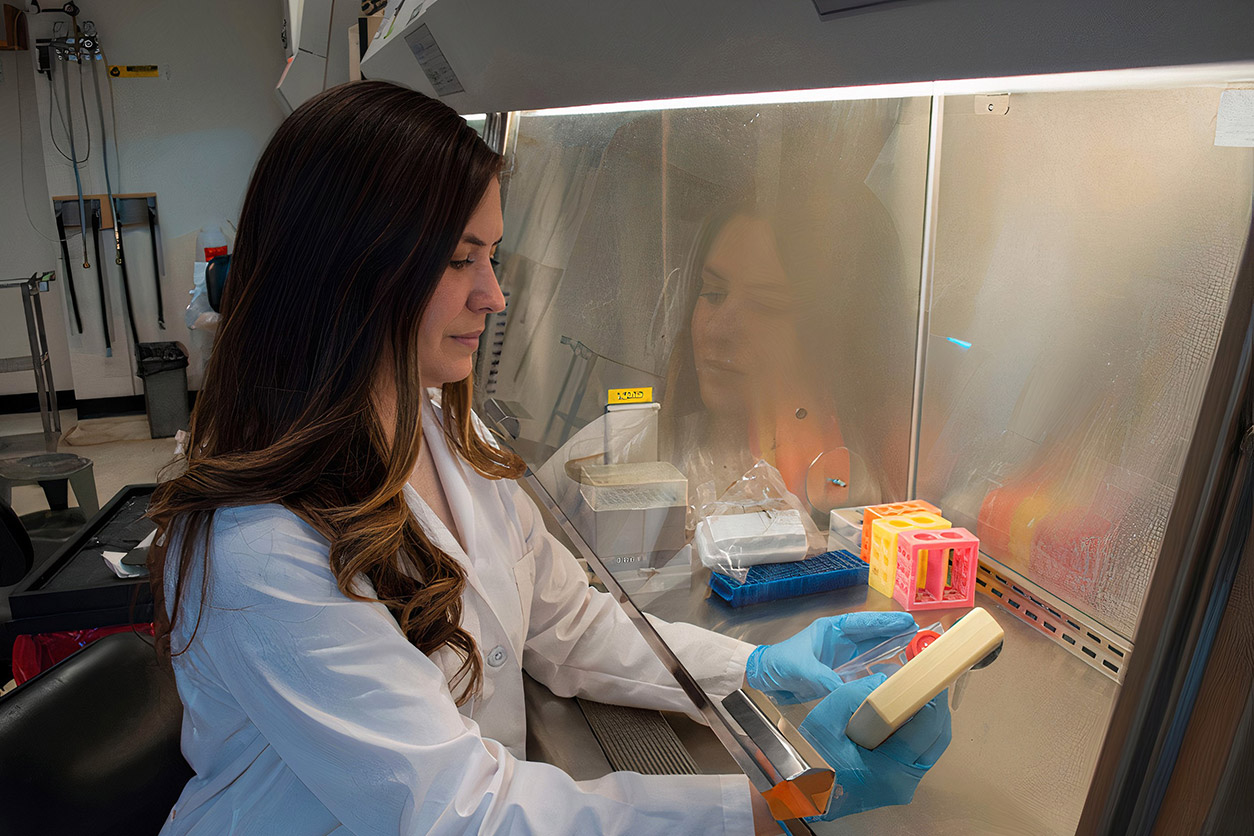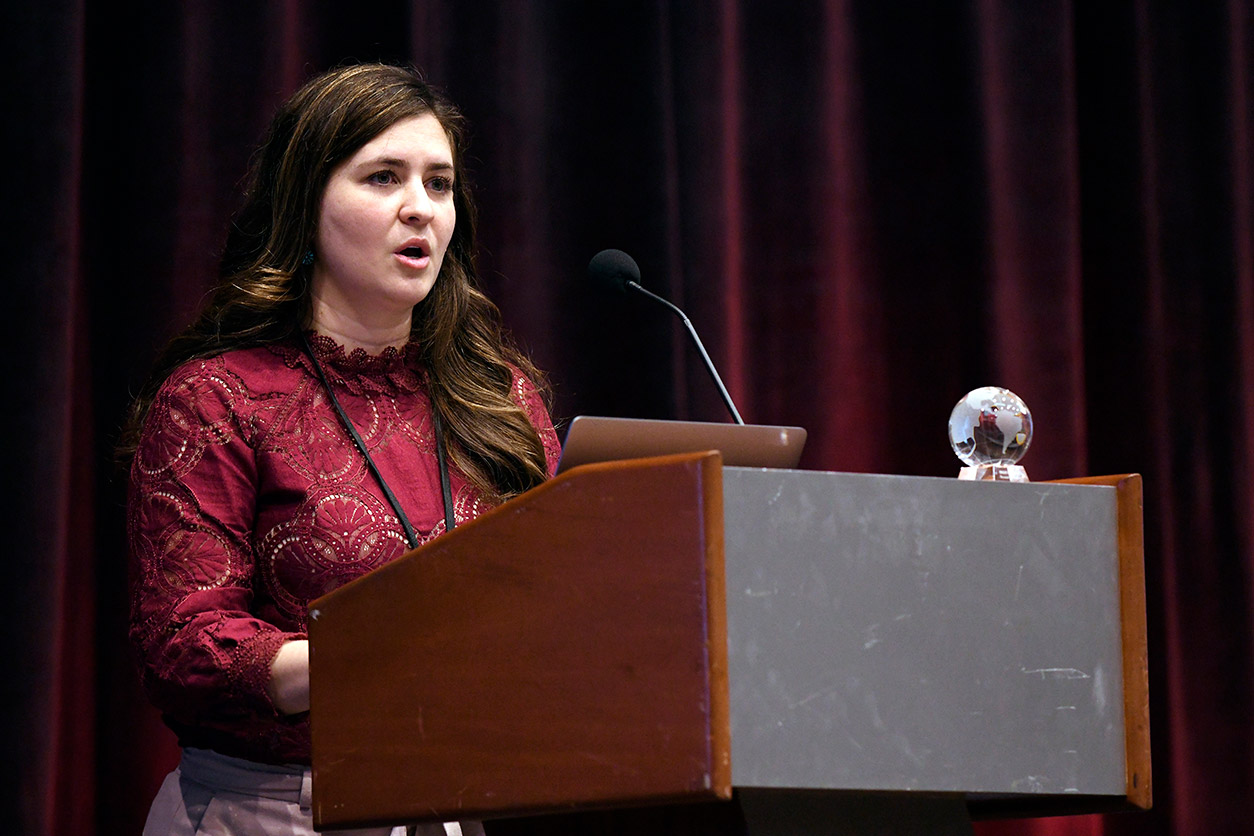Amanda Armijo, D.V.M., Ph.D., of the Massachusetts Institute of Technology (MIT), was selected as the 25th recipient of the Karen Wetterhahn Memorial Award. This award from the NIEHS Superfund Research Program (SRP) recognizes an outstanding graduate student or postdoctoral researcher who exemplifies characteristics of the award’s namesake. Armijo received the award December 15 at the SRP Annual Meeting in Raleigh, North Carolina.
“I deeply admire Dr. Wetterhahn’s scientific curiosity, interdisciplinary approach to science, and dedication to paving the way for women in science, technology, engineering, and mathematics,” Armijo said. “These are qualities that I strive to emulate. I am truly honored to have been selected for this award.”
“Karen Wetterhahn was a champion of women in science and interdisciplinary research,” noted NIEHS SRP Director William Suk, Ph.D. “The annual Wetterhahn Award recognizes outstanding scientists who continue her legacy. This is the premier group of people who are shaping the environmental health sciences.”
An alarm bell in the body
Armijo combines her knowledge of DNA, toxicology, and comparative medicine toward developing new methods to study how a contaminant called N-Nitrosodimethylamine (NDMA) damages genes. Through her work, Armijo has added further proof that NDMA can cause DNA mutations, and she has shown that studying mutation patterns can help reveal the underlying mechanisms of how NDMA causes disease.
“If we can understand how natural differences in DNA repair in the general population affect the mutational patterns of NDMA we measure, we will be a few steps closer to understanding what makes one person more or less vulnerable to NDMA damage,” Armijo explained. “That understanding may inform strategies for remediation, intervention, and prevention of cancer and other diseases associated with environmental exposures.”

Suk applauded both Armijo’s own interdisciplinary education and her work with team members from across disciplines.
“Health sciences are interdisciplinary in nature” he noted. “SRP brings people together from all disciplines to solve complex problems.”
“Being a trainee in the MIT SRP Center has helped me succeed in my research in countless ways,” Armijo said after the ceremony. “The interdisciplinary approach and collaborations spark innovation, enable me to consider and discuss new ideas with peers and mentors, and help me become a better scientist. The community outreach opportunities continue to provide me with a sense of purpose, especially on difficult days in the lab.”
Lifting up diverse students
Along the way to her research goals, Armijo also hopes to support other students like her — female students in traditionally male fields of science, technology, engineering, and mathematics (STEM), and students from ethnic minorities or from areas with lower access to educational opportunities.

“As a first-generation college graduate, I have overcome many hurdles to get where I am now,” Armijo said. “The mentorship and support I received along the way are things I actively emulate for the next generation of minority scientists, so I have taken time to mentor and counsel other students. My dream is to make the largest impact that I can toward making the experiences of those who come after me more equitable.”
MIT mentor Bevin Engelward, Sc.D., pointed to Armijo’s dual passions of research and support of other students as a combination that will make her impactful in the laboratory as well as in the community.
“Dr. Armijo truly embodies the values of research excellence and public service of Dr. Karen Wetterhahn,” Engelward said. “One of Dr. Armijo’s biggest goals is to give back. For her, this is as high a priority as excelling in research. She is especially eager to help young women and minority students.”
Outside of the lab, Armijo has mentored undergraduate minority students who are interested in pursuing careers in research or veterinary medicine. She has also volunteered with children in foster care or experiencing homelessness and has participated in programs that provide affordable veterinary care to low-income community members.
A future in translational research
One of Armijo’s priorities is performing translational research, laboratory science that can have immediate and lasting contributions outside the lab for protecting human and environmental health.

Working at the intersection of environmental immunotoxicology and human and animal diseases, she aims to continue revealing how environmental exposures can harm the immune system. Armijo sees her parallel goal of nurturing the careers of students from groups that are underrepresented in STEM as equally important.
“Science and society benefit when there are people with different perspectives coming together and solving problems,” she said. “Having diversity in the STEM fields allows us to achieve more and be more innovative for future generations.”
(Lee Cannon is a senior communications specialist for MDB, Inc., a contractor for the NIEHS Division of Extramural Research and Training.)
Source link
factor.niehs.nih.gov

